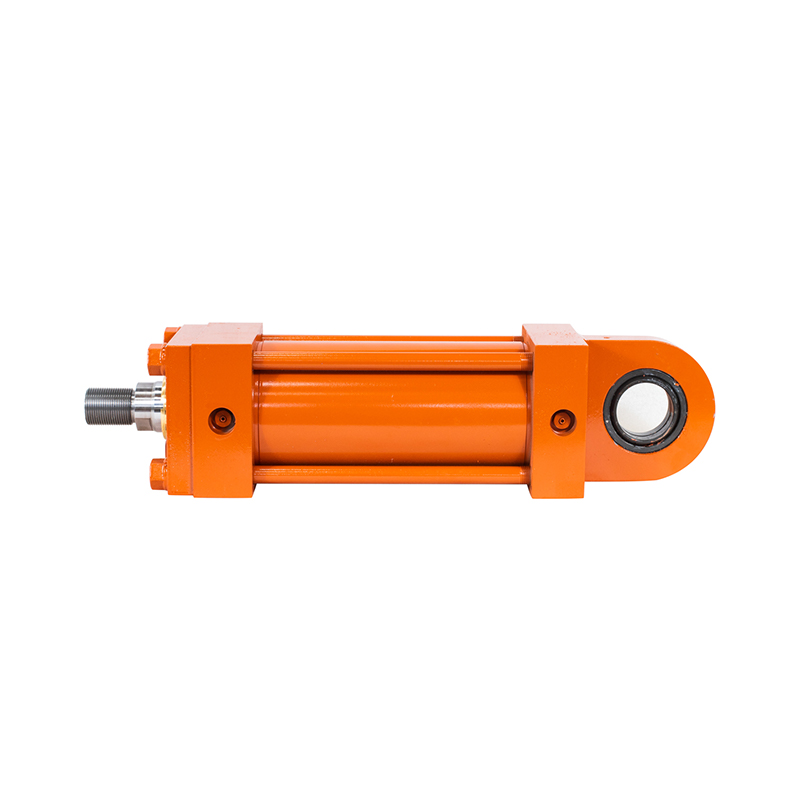Hydraulic cylinders are fundamental components in industrial machinery, playing a crucial role in converting hydraulic pressure into mechanical motion. At their core, these cylinders use the power of pressurized hydraulic fluid to create linear or swinging motion, thereby enabling the movement and operation of various mechanical systems. Understanding how hydraulic cylinders achieve this transformation involves delving into their structure, operating principles, and the inherent advantages that make them indispensable in many applications.
The operation of a hydraulic cylinder begins with the basic principle of hydraulic force. A hydraulic cylinder consists of several key components: the cylinder block, piston, piston rod, seals, and guides. When hydraulic fluid is pumped into the cylinder through a high-pressure port, it exerts force on the piston, which is housed within the cylinder block. This force pushes the piston in a linear direction, causing the piston rod, which is attached to the piston, to move as well. The mechanical motion generated by the piston rod is then transmitted to the connected mechanical components, driving their movement or action.

This conversion of hydraulic pressure into mechanical motion is governed by Pascal's law, which states that pressure applied to a confined fluid is transmitted undiminished throughout the fluid. In practical terms, this means that the hydraulic fluid's pressure is used to create a force on the piston. The magnitude of this force is determined by the fluid pressure and the area of the piston. The larger the piston, the greater the force that can be generated, making hydraulic cylinders suitable for high-pressure and large-flow applications. When the hydraulic fluid flows back through the low-pressure port, the piston returns to its original position, either under the action of a spring or due to an external load, allowing the cylinder to complete a reciprocating cycle.
Hydraulic cylinders offer several advantages that enhance their utility in various fields. Their ability to provide substantial force in a compact and efficient form makes them ideal for applications requiring high power and precision, such as in injection molding machines, excavators, and aerospace systems. The cylinders can be designed to accommodate a wide range of pressures and forces, making them versatile for different tasks, from lifting and pushing to turning and pulling. Additionally, hydraulic cylinders can be tailored to specific needs through variations in design, such as piston type, plunger type, or swing type, each offering unique benefits for particular applications.
The efficiency of hydraulic cylinders in converting hydraulic pressure into mechanical motion also stems from their relatively simple operation compared to other actuators. This simplicity contributes to their reliability and longevity, as fewer moving parts reduce the likelihood of mechanical failures. However, the performance of hydraulic cylinders is highly dependent on the quality of components and the precision of their design, as well as on proper maintenance and regular inspection to prevent issues such as leaks or wear.
Hydraulic cylinders are essential devices that harness hydraulic pressure to generate mechanical motion, driving a wide range of industrial processes and machinery. Their design, which utilizes the force of pressurized fluid acting on a piston, allows them to deliver substantial power in a controlled and efficient manner. The advantages of hydraulic cylinders, including their adaptability and reliability, underscore their critical role in modern engineering and manufacturing, making them a cornerstone of industrial automation and heavy machinery.
We have a strong R&D team, and we can develop and produce products according to the drawings or...
We have two of our own casting foundries and one CNC machining factory. So we can offer the best price...
We have our own testing lab and the advanced and complete inspection equipment, which can...